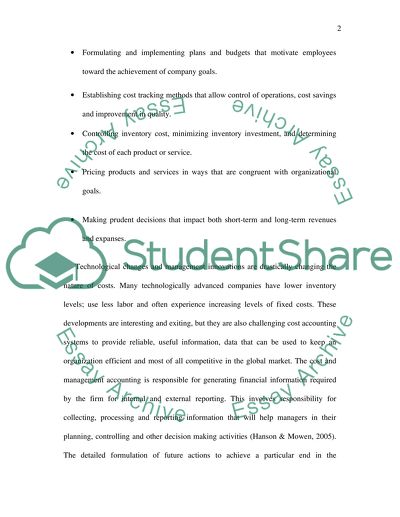Cite this document
(“The Role of Cost Accounting in Business Planning, Control, and Essay”, n.d.)
The Role of Cost Accounting in Business Planning, Control, and Essay. Retrieved from https://studentshare.org/miscellaneous/1513392-the-role-of-cost-accounting-in-business-planning-control-and-decision-making
The Role of Cost Accounting in Business Planning, Control, and Essay. Retrieved from https://studentshare.org/miscellaneous/1513392-the-role-of-cost-accounting-in-business-planning-control-and-decision-making
(The Role of Cost Accounting in Business Planning, Control, and Essay)
The Role of Cost Accounting in Business Planning, Control, and Essay. https://studentshare.org/miscellaneous/1513392-the-role-of-cost-accounting-in-business-planning-control-and-decision-making.
The Role of Cost Accounting in Business Planning, Control, and Essay. https://studentshare.org/miscellaneous/1513392-the-role-of-cost-accounting-in-business-planning-control-and-decision-making.
“The Role of Cost Accounting in Business Planning, Control, and Essay”, n.d. https://studentshare.org/miscellaneous/1513392-the-role-of-cost-accounting-in-business-planning-control-and-decision-making.


